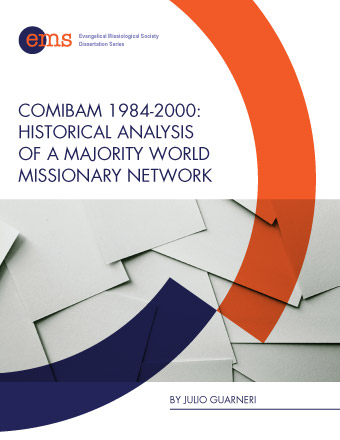This dissertation provides a historical analysis of the Cooperación Misionera Ibero Americana [Ibero American Missionary Cooperation] (COMIBAM). This historical analysis consists of COMIBAM’s first sixteen years (1984-2000). The purpose is to tell the story of this important network and its missionary advance and to provide the baseline for further research on the topic. The thesis posits that COMIBAM as a missionary network from the Majority World represents an indigenous movement that has made a significant impact on the global missionary advance.
Visionary indigenous leadership, a context of ecumenism, missionary fervor and changes in the Latin American landscape have given COMIBAM International the impetus of a movement. This is a case study of the right leadership in the right context producing an effective missionary network. The research method consisted of first reviewing the body of secondary source literature. Secondly, the primary sources were examined. The third step consisted of interviews with COMIBAM leaders, missionaries and other Latin American evangelicals and the examination of the COMIBAM/Bertuzzi archive in order to obtain further data, validation of written documentation and complementation of differing perspectives. The dissertation was written using a humanities paradigm. The study has demonstrated that COMIBAM International was a successful missionary network in the twentieth century in regard to the broadening scope of its outreach, the increased number of missionaries sent, the growth in number of missionary training and sending agencies that were formed, and the longevity of the organization. The study of COMIBAM as a missionary network from the Majority World yields practical insights for the advancement of mission in the twenty-first century. These implications include the impact of missionary sending from the Majority World on the global church, the need for the church in the northern hemisphere and the church in the southern hemisphere to partner in order to effectively fulfill the Great Commission, the urgency of reexamining the mobilization of Hispanic evangelicals in the United States, and the need for the continued development of a Latin American missiology in the twenty-first century.
